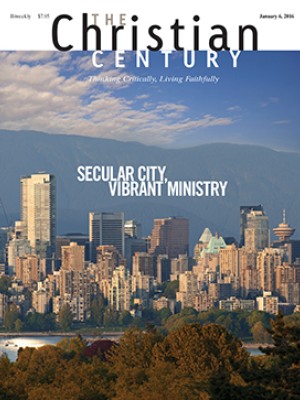January 17, Second Sunday after Epiphany: 1 Corinthians 12:1-11
In his book The Wisdom of Crowds, James Surowiecki names a bias with which most people live. “Most of us,” he writes, “whether as voters or investors or consumers or managers, believe that valuable knowledge is concentrated in a very few hands (or, rather, in a very few heads). We assume that the key to solving problems or making good decisions is finding that one right person who will have the answer.”
According to Surowiecki, we are very unlikely to trust a large crowd of people to be well informed, to make good decisions, or to be wise in any way. Perhaps that’s because we recognize that our own ordinary selves aren’t so reliable in making good predictions and aren’t so willing to undertake sophisticated cost-benefit analyses. More often than not, we allow emotion to affect our judgments. Why would we ever expect a large number of ordinary persons like ourselves to exhibit more intelligence or achieve better outcomes than the experts could?
Read our latest issue or browse back issues.
Such suspicion of crowds has been exacerbated perhaps by our honest recognition that peer pressure or the dynamics of groupthink can wield additional powerful influences on our already feeble individual abilities. The recognition that group dynamics often shape the decisions we make and the actions we take for the worse has informed the views of many prominent thinkers throughout history.
For example, American social ethicist and preacher Reinhold Niebuhr made the case that though individuals might be moral, collectively society is immoral. Henry David Thoreau believed that groups don’t rise to the level of the best member, but rather sink to the level of the lowest (The Wisdom of Crowds).
Given such suspicion of crowds, what are we to make of the church? How are we to understand the church’s potential for seeking truth, for making good decisions, for being wise?
Surowiecki argues that large groups can often be remarkably intelligent and wise, even smarter than the smartest people in them. A necessary condition is that the group include diverse perspectives. Its members cannot be smart in the same way. If they are, the group will learn less, will gain less new information, and will be less likely to explore alternatives.
“Ultimately, diversity contributes not just by adding different perspectives to the group but also by making it easier for individuals to say what they really think,” Surowiecki adds. It’s hard to have collective wisdom when a group does not consist of independent thinkers.
To coordinate a diverse group and to encourage its members to collaborate with one another—these are monumental tasks. They are the hard tasks with which any democracy, such as ours, struggles. They are also the challenge put before the church.
From the apostle Paul’s letter to the Corinthians we can infer that right from the beginning the church had a hard time coordinating and building up unity, given the diversity of gifts and abilities of its members. It seems that some in the Corinthian church were exalting themselves over others because they possessed what they considered particularly prized spiritual gifts. It seems that the Corinthians tended toward the same bias from which many of us suffer: the belief that what is most needed, what is most valuable, is concentrated in the special abilities of just a few people and that therefore there is very little collective wisdom or collective merit in the church to be appreciated and coordinated.
In an effort to correct what he observed, Paul developed an understanding of spiritual gifts. He wrote to the Corinthians, “Now concerning spiritual gifts, brothers and sisters, I do not want you to be uninformed.” Reminding them that the Spirit gives different gifts to different people, he wrote, “To one is given . . . the utterance of wisdom, and to another the utterance of knowledge . . . , to another faith . . . , to another gifts of healing.” By no means was this list of gifts exhaustive. It was meant to increase the Corinthians’ awareness of and appreciation for the diversity of gifts and to underscore that, though the gifts differ from each other, they all come from the Spirit.
For Paul the diversity of gifts would help build up the body of Christ, the common good. “To each,” he wrote, “is given the manifestation of the Spirit for the common good.”
We may think of ourselves as quite ordinary. We may not think that crowds or congregations composed of ordinary people, like ourselves, could amount to much. We may prefer to rely on those who have expert knowledge and special skills to lead us and to lead the church. But the Spirit has been poured out upon all of us. The Spirit has given each of us gifts to be used for the common good. As long as we hear the voices of those whose perspectives, knowledge, life experiences, skills, and gifts are different from our own, as long as we don’t try to be the same as one another, as long as we allow ourselves to think independently from each other, there is a good chance that the Spirit will be working among us.
We don’t have to be extraordinary; we don’t have to be like one another; we do have to live together, listen to one another, love each other. Then with the Spirit’s help, the church just might be able to make a world of difference.






